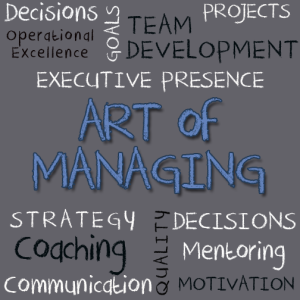 The October, 2013 Harvard Business Review features an interesting article by Harvard Professor, Anita Elberse, focusing on the leadership approaches of Sir Alex Ferguson during his extremely successful 26 season run leading the Manchester United football club.
The October, 2013 Harvard Business Review features an interesting article by Harvard Professor, Anita Elberse, focusing on the leadership approaches of Sir Alex Ferguson during his extremely successful 26 season run leading the Manchester United football club.
Of the eight valuable leadership lessons shared in “Ferguson’s Forumla” (subscription or $), number 2, “Dare to Rebuild Your Team” is critically important and often bypassed in the workplace due to friction, tentativeness on the part of managers and HR groups and lack of vision and courage on the part of managers.
While I prefer the implication of the term “build” versus the article’s “rebuild,” there’s little doubt in my mind that the best managers and leaders are always on when it comes to assessing talent, supporting development, and yes culling out individuals who either don’t fit or might fit better somewhere else.
Sadly, in too many cases, we allow a number of challenging but controllable impediments to get in our way of doing the right thing.
At Least 4 Big, Hairy, Self-Limiting Impediments to Building (or Rebuilding) Great Teams and Firms:
1. Too Linear…Not Enough Rotation. While our job is to identify and leverage strengths and talents and minimize the impact of weaknesses, unlike Sir Alex or other coaches, we often don’t have the courage or perceived flexibility to try our athletes in different role. That’s a disservice to all parties.
Most firms don’t have a culture that recognizes the strengths and benefits to everyone…firm and people, of assignment or job rotation. (This was one of Deming’s Deadly Sins of Management.) Through rotation, we get to see the strengths and developmental needs of people in much greater clarity over a broader sampling of situations. Our linear approach to positions, perpetuated by HR rules and a general lack of managerial creativity emphasizes straight-line progression and stifles building team and talent strength.
2. The Apprentice Effect. We end up with too many apprentices and rookies and too few veterans and experienced power players. In the interest of short-term economics, there’s a natural institutional incentive to go cheap, or at least not to go high for talent. Sorry, but game-changing players demand and get premium compensation. While I love a team with great bench strength (and building bench is always an objective), there’s got to be proper balance of experienced and veteran to high potential and up and comer.
3. Lack of Experimentation Where It Counts. We don’t encourage our managers to experiment with team, position and structural approaches to improving. Heck, in many cases, we fight them on this topic, again through restrictive HR policies or irrational top leadership conservatism.
4. Irrational Fear of Impacting the Culture. Too many top leaders sacrifice the opportunity to do all of the above (change, invest, adjust, challenge convention) on the altar of organizational culture. Fear of reprisal from “the culture” is a bogeyman that keeps many good but unconventional people, team and organizational development ideas at bay. Ironically, this inaction for not wanting to upset the culture, sews the seeds of future business problems and places the entire culture in jeopardy. I’m not encouraging anyone to disrespect the culture, but, don’t use it as an excuse.
The Bottom-Line for Now:
There’s nothing easy about building successful teams and organizations and then sustaining that success. In reality, the notion of “sustaining success” is a false god and not achievable. You are either changing or declining…you are never sustaining. Success like Ferguson’s as described in the article, takes discipline and most of all, it takes courage on the part of leaders at all levels to do what’s right, not what’s prescribed in conventional policies and approaches. Muster up the courage and then with all the finesse you can summon, kick the aforementioned impediments right in the teeth.
—
More Professional Development Reads from Art Petty:
Don’t miss the next Leadership Caffeine-Newsletter! Register here
For more ideas on professional development-one sound bite at a time, check out Art’s latest book: Leadership Caffeine-Ideas to Energize Your Professional Development.
New to leading or responsible for first time leader’s on your team? Subscribe to Art’s New Leader’s e-News.
 An ideal book for anyone starting out in leadership: Practical Lessons in Leadership by Art Petty and Rich Petro.
An ideal book for anyone starting out in leadership: Practical Lessons in Leadership by Art Petty and Rich Petro.
